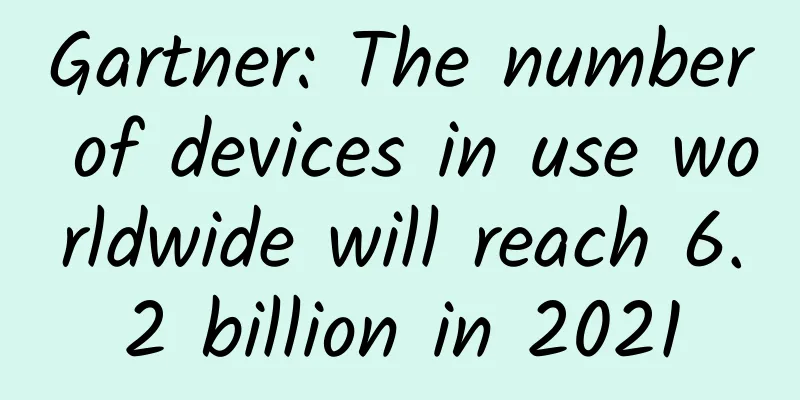Cautiously optimistic! The plot of the "ZTE incident" has reversed, but the story continues

|
First, the Made in China 2025 strategy has listed the new generation of information and communication technology industry as one of the top ten key areas. As a leading enterprise in this field, ZTE will inevitably receive strong support from the Chinese government. After the US Department of Commerce issued a denial order on April 16, the Chinese Ministry of Commerce and the Ministry of Foreign Affairs quickly responded that China is ready to take necessary measures to safeguard the legitimate rights and interests of Chinese companies. From May 3 to 4, when the US President's special envoy and Treasury Secretary Mnuchin led a delegation to China, China made solemn representations to the US on the ZTE case. The US side expressed its attention to China's representations and would report China's position to the US President. After Trump's Twitter message on May 14, the Chinese Ministry of Foreign Affairs responded that it highly appreciated the US's positive statement on the ZTE issue and was maintaining close communication with the US on the implementation of specific details. These public news all show that China has been actively mediating the problems faced by ZTE, so the reversal of the incident is not completely unexpected. Secondly, ZTE has always been united from management to ordinary employees, actively seeking self-help. After receiving the denial order from the US, ZTE emphasized in an open letter to all employees that its determination to take compliance as the cornerstone of its strategy will never waver. In the letter, the company encouraged all employees to withstand the pressure, firmly adhere to the bottom line of compliance, and maintain the good credit of the company. In desperate situations, ZTE still pays attention to protecting the interests of employees, customers, operators, and partners. It has shown the style of a responsible multinational company to the outside world and has been highly praised by domestic and foreign media, customers, partners, and suppliers. At the same time, ZTE took the initiative to provide supplementary materials to the US and started communication, while organizing nearly 80,000 employees to stick to their posts and take practical actions to strive for a quick resolution of the denial order. These are the basis for the reversal of the incident. Third, ZTE is an indispensable link in the global ICT industry chain. The US rejection has a huge impact, and no one will welcome this ban. After the US ban on ZTE's parts exports came into effect, ZTE's various businesses quickly came to a standstill. However, ZTE occupies about 10% of the global telecommunications equipment market and nearly 30% of the Chinese telecommunications equipment market. It has extensive cooperation with operators around the world around 5G testing and trial network construction. Therefore, after ZTE's suspension, the interests of operators in various countries will be greatly affected, not to mention large and small corporate customers and individual customers. In addition, according to statistics, as of the end of 2017, ZTE has accumulated more than 69,000 global patent assets, more than 30,000 authorized patent assets, including more than 2,000 5G strategic layout patents. This means that once ZTE is forced to interrupt its cooperation with US companies, the patent cooperation relationship that originally crisscrossed between countries will be greatly changed, and US ICT manufacturers will also be severely impacted. Fourth, the relationship between ZTE and its US suppliers is not a simple question of who can do without whom, but rather a win-win situation for both sides and a loss for both sides. Many people only see that ZTE is in trouble because it cannot purchase US parts and cooperate with US companies, but ignore that many US companies will also be in trouble if they lose ZTE as a big customer. Some foreign media analysis believes that after ZTE is banned, US companies that maintain close cooperation with it will also face huge losses. Only three US companies, Qualcomm, Acacia Communications, and Oclaro Inc., will lose $6.8 billion in sales, and more than 32,000 employees will be affected. As the spokesperson of the Ministry of Commerce of China said on April 17, ZTE has carried out extensive trade and investment cooperation with hundreds of US companies and contributed tens of thousands of jobs to the United States. Previously, more than 1,000 economists in the United States also jointly stated that there will be no winners in the trade war, and the technological cold war will hit the global economy hard. Therefore, the United States should properly handle the "ZTE incident." It is not difficult to see that among Chinese companies operating in overseas markets, ZTE is actually one of the most successful companies. Since entering the international market in 1995, ZTE has successively set up permanent offices in 107 countries and regions around the world to carry out in-depth operations, and its overseas market revenue accounts for more than half. In this process, traditional multinational communication giants have fallen one after another, while ZTE has continued to grow and become one of the world's four largest communication manufacturers. In the global telecommunications equipment market, ZTE holds a 10% market share, and telecommunications operators in major countries are all ZTE's customers. By strengthening research and development and carrying out extensive international cooperation, ZTE has also become a major force in the research and development of global communication technology standards. In 2017, it ranked second in the world with 2,965 international patent applications. This is the eighth consecutive year that ZTE has ranked among the top three in the world in terms of international patent applications. It is the only Chinese company to have won this honor for eight consecutive years. The communications industry is an industry that requires a high degree of openness and full cooperation. As a highly internationalized enterprise, ZTE is not only the backbone of China's communications industry, but also the leading force of the international communications industry. It is imperative to carry out extensive international cooperation and participate in the international division of labor. From this perspective, the US government's rejection order actually violates the law of industry development and is harmful to the development of the global ICT industry. In the final analysis, only mutual benefit can lead to a win-win situation. So far, nearly a month has passed since the incident, which is undoubtedly the most difficult time for ZTE. Although there have been good news frequently during this period, we still need to maintain a cautious and optimistic attitude. From the national level to ZTE itself, we need to continue to promote the resolution of the problem. For ZTE, on the one hand, it needs to continue to actively seek national guidance and help, and on the other hand, further maintain communication with relevant US departments. As we have seen, ZTE has called on all employees to face it calmly, actively seek solutions and communication channels, and strive to maximize the interests of investors, customers, partners and all employees with its consistent responsible and responsible cultural temperament. |
<<: What is a VPN and why is it important for SD-WAN?
>>: What is the situation of my country’s Internet network security in 2017?
Recommend
Can 6G "skip" the development of 5G? Experts: 5G is the foundation for the development of 6G
Since the beginning of this year, South Korea, Ja...
China's digital economy reaches a turning point from big to strong
[[396176]] On April 25, the Cyberspace Administra...
Huawei Storage promotes the "all-cloud, flash-based" strategy to eliminate bottlenecks in migrating key services to the cloud
[51CTO.com original article] With the development...
A complete set of DNS related tests in IPv6 environment
[[271457]] Dong Tao, senior operation and mainten...
Experts: 6G will be available in 10 years and is expected to be 100 times faster than 5G
5G has not yet been fully rolled out, but 6G is a...
CloudCone: 1GB memory KVM annual payment of $12.95, 2GB memory KVM annual payment from $15
CloudCone's 3rd anniversary event is drawing ...
NetCloud: San Jose CN2 GIA line VPS monthly payment starts from 29 yuan, with 15 extra days for the first month
Wangyun (wangyun.net) is a Chinese hosting provid...
Easy to understand: understanding the "weakness" and "slowness" of mobile networks
1. Introduction With the rapid development of mob...
RAKsmart: US VPS monthly payment starts from $0.99, 4G memory cloud server starts from $4.99/month
RAKsmart has launched a new promotion in October,...
What does cutover mean in network engineering?
1. Main contents of this article What types of bu...
Say goodbye to manual inspections, automation makes network device management more efficient
In modern network architecture, the health of net...
September operating data of the three major operators: 5G enters the harvest period after entering the "warming up" mode
Unconsciously, the third quarter of 2020 has come...
How far will eSIM cards go in 2018?
The eSIM card was mentioned as early as 2011. The...
Mixed ownership reform and restructuring: what are the three major operators doing?
The most eye-catching thing in the communications...
Network construction cannot be completed overnight: VoLTE is the bright future for operators
Recently, a portal website published an article p...









